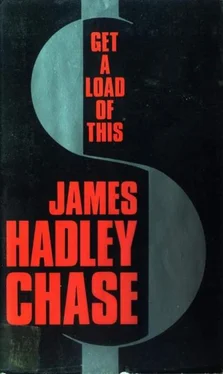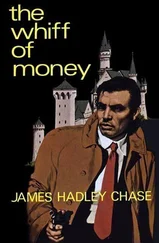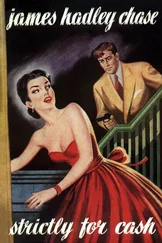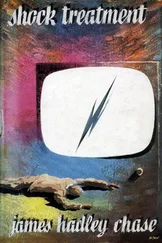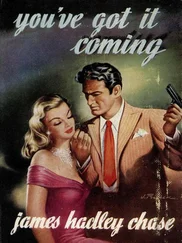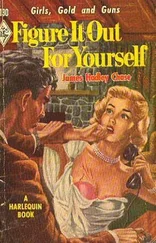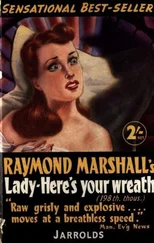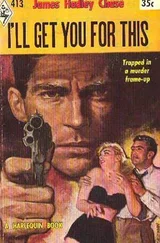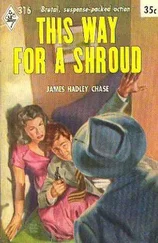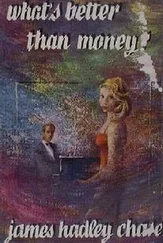Quentin got to his feet. “Then I’ll see her,” he said. “I’m not taking the responsibility of her being here if things get hot. She can take a car out of town and the sooner she’s out the better.” He went to the door. “What room is she in?”
Anita’s eyes opened. “But, senor, she is in bed. You cannot go to her.”
Morecombre got to his feet hurriedly. “Just a minute, pal,” he said. “This sounds like a job for a man of the world. Just step on one side and let me handle it.”
Quentin eyed him coldly. “Sit down and shut up! What room is she in?”
Anita told him, looking furiously at Morecombre, and Quentin went out, crossed the corridor and knocked sharply on the door indicated. He heard someone say something inaudible, so he turned the handle and went in.
Standing by the open windows, looking on to the hotel grounds, was a tall girl, dressed in a white silk evening wrap. She turned sharply as Quentin entered. “What do you want?” she asked.
Quentin regarded her with interest. He was more interested in her expression than her actual beauty. He was curious about the hurt, sullen look in her eyes and the little frown that increased as their eyes met.
“I’m sorry to come barging in like this,” he said, standing just inside the room, holding the door handle, “but I thought you ought to be told that this hotel is not the place for any unattached girl. There is going to be a bad disturbance—”
She interrupted him. “I don’t know who you are,” she said, “but the maid has already told me that I ought to go. This is a hotel, and I intend to stay. Anyway, for the time being.” She turned back to the window, dismissing him.
Quentin felt a strong desire to reach out and turn her over his knee. He came further into the room and shut the door. “Maybe I had better introduce myself. I’m Quentin of the New York Post.”
He saw her suddenly stiffen, but she didn’t turn from the window.
He went on: “I’m down here because my paper expects trouble. All Americans, except the residents, have cleared out. The residents have gone over to the consul’s house under guard. I guess you’re about the only white woman foot-loose around this town. If you’ll pack, I’ll take you over to the consul myself.”
For a moment she hesitated, then she turned and faced him. “I don’t understand what you’re talking about,” she said sharply. “What trouble? What can happen here?”
Quentin grinned sourly. “Plenty,” he said. “Maybe you don’t know anything about Cuban politics?” He came and joined her at the window. “A grand-looking joint, ain’t it?” he said, looking across the flaming flower-beds, the green lawns and across the bay. “Sure, it looks all right, but underneath it is a mass of seething misery. The graft that goes on here would make Chicago look like a virgin’s tea-party. The President in power right now is one of the meanest guys alive. All the punks who work under him run their own little graft on the side. This has been going on some time, and I guess the natives are getting tired of it. The trouble came to a head last week over transport dues. The guy who handles that has put a tax on every truck, pushing up the freight rate. Everyone knows that it will go into his own pocket, so they’ve got wise to him. They’ve come out on strike. These higher-up guys are crafty, and they guessed what would happen, so they’ve laid in a good stock of food and are sitting pretty. The rest of Havana is going without. No boats bring stuff in, no trains, no lorries, no nothing. Food is running short. It won’t be long now before the natives get mad. When those guys get mad, they’re likely to cause a heap of trouble. Now that’s why you ought to get out or at least go over to the consul’s place.”
The girl had stood very still while he was talking, watching him closely. When he had finished speaking, she seemed to relax and the frown disappeared. “I’m afraid you must have thought I was very rude,” she said, “but I’m in rather a difficult position.” She paused, looked at him rather helplessly, and then turned to the window again.
Quentin felt her embarrassment. “I heard you missed the ship,” he said casually. “I suppose you left all your things on board—clothes, money and so on, huh?”
She turned eagerly. “Yes, I did. I’ve got nothing to wear except this. I’ve got no money—what—what do you think I can do?”
“You’ll be all right. I’ll get a car and drive you over to the consul. I guess the manager of this joint has got a car. The consul’ll fix you up for dough. It’s his job.”
She looked relieved. “It’s very kind of you, Mr. Quentin,” she said. “I hope you’ll forgive me. I’m afraid I was very rude just now.”
Quentin gave her a lazy grin. “That’s all right,” he said, “you ain’t got anything to worry about. All the same, I’d like to see you out of here. Just to get the records straight, will you tell me your name?”
She reacted immediately to his question by stiffening once more and regarding him suspiciously.
Quentin was in no mood for mysteries. Far more important things were about to happen. He said rather sharply: “Listen; I know what you’re thinking. I’m a newspaper man. The fact that you’re in this hotel, without an escort, in evening dress, in the middle of a coming revolution, is news. So it is, but not now. A nice-looking dame who for some reason or other gets herself mislaid ain’t the kind of news my chief is expecting me to turn in. He wants a full-blooded revolution, so relax. I ain’t printing anything about you, but if you want me to help you you gotta give me your name. What is it?”
She said a little sulkily, “Myra Arnold.”
Quentin nodded. The name meant nothing to him. “O.K., Miss Arnold, if you’ll wait here, I’ll arrange to get a car for you—unless you’d like to come over to my friend’s room and have some breakfast.”
She shook her head. “I’ll wait here,” she said.
Quentin shrugged. “O.K., I won’t keep you long.”
He went back to Morecombre’s room. Anita, the manager and Morecombre were busy with tins when he entered. Morecombre said, “What’s she like?”
Quentin made curves with his hands. “Very nice, but very cold and up-stage,” he said, taking a cup of coffee from Anita. “Listen,” he went on to the manager, “you gotta car? I want to run her over to the consul’s place. I guess that’ll be the best place for her.”
The manager nodded. “I have a car,” he said. “She can go in it by all means, but there is too much fuss; there will be no trouble, you see.”
As Quentin turned to leave the room, the door was thrown open and two Cuban soldiers with rifles and fixed bayonets slid in, taking up positions each side of the door.
The manager went very white and sat petrified. Anita’s big eyes opened and a tiny scream fluttered at her mouth.
Quentin said coldly, “What the hell’s this?”
In the passage, just outside the door, stood a thin little man, dressed in the white-and-gold uniform of a Cuban general. His coffee-coloured face reminded Quentin of a vicious, startled little monkey. One claw-like hand rested on a revolver strapped to his waist.
The manager said faintly, “Can I be of any service, General?”
The little man didn’t even look at him. He was staring at Quentin very thoughtfully. Then he walked into the room and one of the soldiers carefully shut the door.
The little man introduced himself. “General Fuentes,” he said, clicking his heels. “Who are you?”
“My name is George Quentin of the New York Post. This is my colleague, Mr. Morecombre, of the New York Daily. This is a very fortunate meeting.”
Читать дальше
